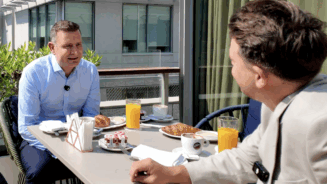Distress success
As for individual credit stories, he identifies Thomas Cook as the best distress trade of the past three years.
“Thomas Cook was on the verge of going bust, and then the management came to see us when Harriet Green joined the company. She hired McKinsey to do a broad analysis of the business and identify where there were cost savings to be had. She outlined such a compelling plan to us of how they could save hundreds of millions in costs.
“On top of that, they looked to raise money from equity markets to help deleverage the balance sheet. All this was just music to our ears, so we got aggressively long on Thomas Cook debt when the yields were 20% plus. We still own the bonds today and they’re all trading above par now.”
In terms of credit rating, Thomas Cook came into the high-yield market with a BB rating. It went to low B, “and now they’re back up in BB territory.
We think, inevitably, it will become an investment grade company once again”. Another deleveraging story on Bezalel’s radar is the Co-op Group, a company that fell on hard times because of what happened at the bank.
“If you look at Co-op Group in isolation, you’ve got a pretty solid business there. A supermarket that is focused on convenience stores, which is where a lot of the supermarkets are moving to, so that’s been holding up fine. They’ve also got a highly valued funerals business. Once again, we got aggressively along their notes and have made a lot of money, and we still own them.”
Striking a cautious note
In contrast to his positivity on the UK, Bezalel has been cautious on emerging market debt for a long time, driven by fears over China and the dollar. Exposure here is less than 5%, and it’s scattered around.




